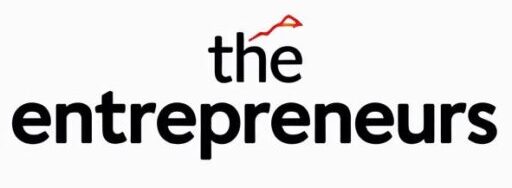Start Your Digital Marketing Journey Here
Looking for a basic digital marketing course? Here’s what you need to know:
- Time commitment: Most basic courses take 3-40 hours to complete
- Cost range: Free to $1,750 (with many quality free options)
- Key topics covered: SEO, social media, content marketing, email marketing, PPC
- No prerequisites required: Most beginner courses welcome complete novices
- Certification: Many courses offer shareable certificates upon completion
Every time you browse online, you’re experiencing digital marketing in action. From the search results you click on to the social media ads in your feed, digital marketing surrounds us—and learning its fundamentals has never been more accessible.
A basic digital marketing course teaches you how to connect with customers online through channels like search engines, social media, email, and websites. Whether you’re looking to advance your career, promote your business, or simply understand the digital landscape better, these courses provide the essential knowledge you need.
“Digital marketing is now more important than ever,” according to the Digital Skills course from FutureLearn, which has enrolled over 320,000 learners. The pandemic accelerated e-commerce growth more in a few months than the previous decade, creating unprecedented demand for digital marketing skills.
The good news? You don’t need technical expertise to get started. Most basic courses are designed for complete beginners, with no coding or previous marketing experience required. In just a few weeks of part-time study, you can gain practical skills that employers value or that help grow your own business.

Digital Marketing 101: Definition & Modern Importance
Digital marketing is simply all your marketing efforts that happen online or through electronic devices. But unlike those traditional billboards or magazine ads you flip past, digital marketing creates real conversations with your customers, targets exactly who you want to reach, and shows you precisely what’s working.
Why does this matter so much today? The numbers tell a compelling story. Digital marketing professionals earn about $7,000 more than their traditional counterparts. US businesses aren’t holding back either – they’re projected to invest a whopping $120 billion in digital marketing initiatives. With over 132,000 open positions in digital marketing and e-commerce, and salaries ranging from $46,009 to $80,185 annually, this field offers genuine opportunity.
As Dr. Jonah Berger, a respected marketing expert, points out – successful digital marketing blends data science with behavioral science. It’s not just about mastering tools, but understanding how real people make decisions in the digital world.
Today’s consumers expect personalized experiences wherever they encounter your brand. Research shows that 75% of marketers have seen personalized customer experiences boost both sales and loyalty. And forget about simple, straight-line customer journeys – people might find you on Instagram, research your products on Google, read some reviews, and finally make a purchase through an email offer. Digital marketing helps you connect these dots.
How Digital Marketing Rewrote the Business Playbook
Remember when businesses had only a handful of expensive ways to reach customers? Television, radio, print ads, and direct mail were once the only options – all costly and nearly impossible to measure accurately.
Digital marketing has completely democratized how businesses promote themselves. Now, a scrappy startup working from a garage can potentially outshine industry giants with clever SEO strategies or a viral social media campaign. The playing field has leveled in ways nobody could have predicted.
The COVID-19 pandemic put this digital shift into hyperdrive. According to Google’s Digital Marketing & E-commerce Certificate program, “E-commerce grew more between February and April 2020 than in the previous decade.” Businesses that quickly acceptd digital channels not only survived – many thrived – while those slow to adapt often struggled to stay relevant.
Perhaps most exciting is how digital marketing enables truly global reach. A small handmade jewelry business in rural America can now sell beautiful pieces to customers in Tokyo, Mumbai, or London with minimal extra cost. This worldwide access comes with incredible targeting precision – you can reach specific audience segments based on demographics, interests, behaviors, and even the time of day they’re most receptive.
A basic digital marketing course introduces you to these fundamentals and more, giving you the tools to steer this exciting, changing landscape – whether you’re looking to boost your career prospects or grow your own business.
Is a Basic Digital Marketing Course Right for You?

I remember talking to Sarah, a small business owner who kept asking, “Is digital marketing really for someone like me?” Maybe you’ve wondered the same thing. The truth is, a basic digital marketing course isn’t just for marketing professionals—it’s for anyone who wants to thrive in today’s connected world.
You might be surprised by who benefits most from these courses. Students and recent graduates find that adding digital skills gives their resumes that competitive edge employers are looking for. Even in non-marketing roles, understanding how digital promotion works makes you more valuable to any team.
Career switchers often find digital marketing offers a welcoming path into a new field. I’ve met former teachers, engineers, and even healthcare workers who successfully transitioned into fulfilling digital marketing careers after taking just one foundational course.
Are you running your own business? As an entrepreneur or small business owner, learning digital marketing fundamentals could be the most profitable investment you make this year. Instead of spending thousands on agencies, you’ll gain the skills to connect with customers directly.
Freelancers who master digital marketing find themselves with a double advantage—they can market their own services more effectively while also offering digital marketing as an additional service to clients. It’s like getting two skill sets for the price of one.
For non-profit organizations working with tight budgets, digital marketing knowledge can dramatically increase your impact without draining precious resources. The ability to reach donors and volunteers online can transform a struggling organization into a thriving one.
Professionals in established careers also find tremendous value in upskilling. As one learner from Harvard’s Digital Marketing Strategy course shared, “This was an excellent course with concepts that were immediately applicable to my consulting business.”
Signs You’ll Benefit From a Basic Digital Marketing Course
How do you know if now is the right time to invest in a basic digital marketing course? There are several clear indicators.
Do you notice a skill gap on your resume that keeps coming up in job descriptions? Digital marketing expertise has become expected across virtually all business roles, not just in marketing departments.
Is your business experiencing stagnant sales despite your best efforts? When traditional marketing approaches fall flat, digital strategies often provide the breakthrough you need.
Working with a limited budget makes digital marketing particularly attractive. Dollar for dollar, well-executed digital campaigns typically deliver better returns than traditional advertising, especially for small and medium businesses.
If you have a natural DIY mindset and prefer understanding how things work rather than outsourcing, you’ll find digital marketing deeply satisfying. There’s something empowering about knowing exactly how to grow your online presence without depending on others.
And for the naturally curious, digital marketing courses pull back the curtain on the algorithms and systems shaping our online experiences. You’ll never look at a Google search result or social media ad the same way again.
As one recent Google Digital Marketing & E-commerce Certificate graduate put it: “For anyone new to digital marketing or e-commerce, this program provides a strong foundation and takes you through everything at a great pace.”
Ideal Prerequisites & Mindset for Maximum Results
Here’s the good news: most basic digital marketing courses welcome complete beginners. You don’t need technical skills or prior marketing experience to get started. However, certain qualities will help you get the most from your learning journey.
Curiosity is perhaps the most important trait for successful digital marketers. The landscape changes constantly, and those who thrive are naturally interested in exploring new platforms and technologies as they emerge.
While creativity matters, digital marketing increasingly runs on data. Being comfortable with analytical thinking will help you make sense of campaign metrics and audience insights that drive successful strategies.
The best digital marketers accept a willingness to experiment. Think of digital marketing as an ongoing series of small experiments—some will succeed brilliantly while others might flop. Being comfortable with this process of constant testing and refinement is essential.
Patience separates successful digital marketers from those who give up too soon. Digital strategies rarely deliver overnight results, but consistent effort over time almost always pays off.
Finally, be honest about your time commitment. While many courses advertise “learn at your own pace,” setting aside regular, focused study time will help you not just complete the course but actually implement what you learn.
As another learner noted in their review: “This certificate provides hands-on practice with the tools and skills that you’ll need to be successful in digital marketing and e-commerce roles.”
If you recognize yourself in any of these descriptions, a basic digital marketing course could be the perfect next step in your personal or professional journey.
Inside a Basic Digital Marketing Course: Modules & Tools
A comprehensive basic digital marketing course opens the door to a whole new world of online marketing skills. While each course has its own flavor, most cover the same essential ingredients that will help you build a solid foundation.

When you enroll in a digital marketing course, you’ll typically find a mix of learning formats to keep things interesting. Most courses include engaging video lessons, informative readings, knowledge-checking quizzes, and—my personal favorite—hands-on projects that let you apply what you’ve learned.
Google’s Digital Marketing & E-commerce Certificate, for example, doesn’t just tell you about marketing tools—it lets you get your hands dirty with real platforms like Google Analytics, Google Ads, Mailchimp, Canva, and Shopify. There’s simply no substitute for this kind of practical experience.
You’ll also explore fascinating case studies that show successful campaigns in action. Harvard’s Digital Marketing Strategy course analyzes how direct-to-consumer brands have shaken up traditional retail through clever digital strategies. These real-world examples help bridge the gap between theory and what actually works in the marketplace.
Search Engine Optimisation: Heart of a Basic Digital Marketing Course
SEO sits at the core of almost every basic digital marketing course—and for good reason. This crucial skill teaches you how to boost your website’s visibility in search results without paying for ads.
Your SEO journey typically begins with keyword research, where you’ll learn to uncover the exact terms your target audience types into Google. You’ll find how to weave these keywords naturally into your content while still writing for human readers first.
Technical SEO might sound intimidating, but good courses break it down into manageable pieces—like ensuring your website loads quickly and works well on mobile devices. You’ll also explore the art of earning quality backlinks, which act like votes of confidence for your website in Google’s eyes.
Most courses introduce you to Google Search Console, a free tool that helps you monitor your site’s performance in search results. As one instructor puts it, “SEO focuses on improving organic search results, while SEM includes paid tactics to increase website visibility.” Understanding this distinction is key to developing a balanced digital strategy.
Social Media & Community Building
Social media marketing has evolved far beyond simply posting updates about your lunch (though food pics still perform surprisingly well!). A quality basic digital marketing course will show you how to turn social platforms into powerful business tools.
You’ll learn to select the right platforms for your specific goals—LinkedIn for B2B, Instagram for visual products, TikTok for reaching younger audiences. Creating content calendars becomes second nature as you develop a consistent posting strategy that keeps your audience engaged.

Many courses introduce the 80/20 principle for content—80% should inform, educate, or entertain your audience, while only 20% should directly promote your products. This approach builds trust and keeps followers from feeling like they’re constantly being sold to.
You’ll also explore tools like Hootsuite for scheduling posts and Canva for creating eye-catching graphics. As one instructor notes, “Social media facilitates two-way communication between brands and their audiences.” This dialogue is what transforms casual followers into loyal community members.
Email & Automation in a Basic Digital Marketing Course
Email marketing consistently delivers one of the highest returns on investment of any digital channel—up to $42 for every $1 spent, according to some studies. That’s why every basic digital marketing course dedicates significant time to this powerful tool.
You’ll learn ethical list-building strategies that attract subscribers who genuinely want to hear from you. Segmentation techniques help you divide your audience into groups based on their interests or behaviors, allowing you to send more relevant messages.
Drip campaigns—automated email sequences that nurture leads through your sales funnel—become a key part of your toolkit. You’ll also find how to conduct A/B tests on everything from subject lines to send times, gradually improving your results through data-driven decisions.
Most courses introduce user-friendly platforms like Mailchimp or Constant Contact, which make it easy to create professional-looking emails without design experience. You’ll also learn deliverability best practices to ensure your carefully crafted messages reach inboxes rather than spam folders.
Content Marketing & Storytelling
Content marketing is about creating valuable material that attracts and engages your target audience. A basic digital marketing course will show you how to turn information into compelling stories that resonate with readers.
You’ll learn to align your content with both business goals and audience needs—the sweet spot where magic happens. Blogging fundamentals cover everything from crafting irresistible headlines to structuring articles for maximum readability and SEO impact.
Visual content creation becomes less intimidating as you explore tools for designing infographics, editing images, and even producing simple videos. You’ll also develop content distribution strategies to ensure your hard work reaches the right people.
Most importantly, you’ll find storytelling techniques that transform dry information into captivating narratives. As one instructor emphasizes, “Storytelling is the key to great content.” When you can tell stories that resonate emotionally, you create deeper connections with your audience.
Pay-Per-Click & Online Advertising
Pay-Per-Click advertising gives you the power to place your message in front of highly targeted audiences and only pay when someone clicks. A basic digital marketing course will explain this powerful but often intimidating marketing channel.
You’ll learn to structure campaigns effectively, organizing your ads into logical groups that make management easier. Keyword selection becomes more strategic as you find how to choose terms that balance search volume with competition and cost.
Ad copywriting is both an art and a science—you’ll learn to create compelling headlines and descriptions within strict character limits. Bidding strategies help you manage your budget effectively, while remarketing tactics allow you to reconnect with people who’ve already shown interest in your business.
Google Ads typically takes center stage in PPC training, though many courses also cover advertising on social platforms. Practical exercises let you create mock campaigns, giving you confidence before you start spending real money.
Analytics, Data & Optimization
The ability to measure results is what truly sets digital marketing apart from traditional methods. Your basic digital marketing course will show you how to use data to continuously improve your marketing efforts.
You’ll identify key performance indicators (KPIs) that align with your specific goals—whether that’s generating leads, increasing sales, or building brand awareness. Google Analytics becomes your new best friend as you learn to track website performance and understand visitor behavior.
Conversion tracking helps you measure when users complete desired actions, from signing up for newsletters to making purchases. A/B testing allows you to experiment with different approaches and let data determine the winners.
Perhaps most importantly, you’ll learn to communicate results effectively to stakeholders through clear, insightful reporting. As one instructor puts it, “Analytics provide insights into customer behavior, campaign performance, and ROI.” This data-driven approach means you’re never flying blind—you always know what’s working and what needs improvement.
Learning Paths: Online vs In-Person & Top Course Features
Choosing how to learn digital marketing is just as important as what you learn. Let’s be honest – your learning style matters, and finding the right fit can make the difference between actually applying your new skills or letting them gather digital dust.
When exploring a basic digital marketing course, you’ll typically choose between online or in-person learning environments, each with their own flavor of advantages.
Online courses offer the freedom to learn in your pajamas at 2 AM if that’s your thing. You can pause, rewind, and revisit concepts until they click, all while saving on commuting costs and time. Many of my entrepreneurial friends love this flexibility, especially when juggling existing work commitments or family responsibilities.
In-person courses, meanwhile, provide that irreplaceable human connection. There’s something powerful about raising your hand for immediate clarification or chatting with fellow students over coffee about how they’re implementing SEO strategies in their businesses. The structured schedule also helps those of us who might need external accountability (you know who you are!).
“I tried learning digital marketing from YouTube videos for months with little progress,” shares Maya, a small business owner. “The structured environment of an actual course with deadlines and instructor feedback was the game-changer for me.”
Here’s how the two approaches stack up:
| Feature | Online Learning | In-Person Learning |
|---|---|---|
| Schedule flexibility | High – learn anytime | Low – fixed class times |
| Geographic accessibility | Available worldwide | Limited to your location |
| Direct instructor interaction | Usually limited to emails/forums | Immediate and personal |
| Networking opportunities | Virtual communities | Face-to-face connections |
| Cost | Generally lower ($0-500) | Usually higher ($500-2000+) |
| Learning pace | Self-directed | Instructor-paced |
| Technical requirements | Reliable internet & computer | Transportation to venue |
Time commitment varies dramatically across courses. You might complete Google’s free digital marketing basics in just 3 hours, while more comprehensive programs like their Digital Marketing & E-commerce Certificate require 10 hours weekly over 3-6 months. Harvard’s Digital Marketing Strategy course splits the difference at 7 weeks with 6-7 hours per week.
Free vs Paid Basic Digital Marketing Course Options
The good news? You don’t need to empty your wallet to start learning digital marketing.
Free courses provide surprisingly robust foundations. Google’s “Fundamentals of Digital Marketing” stands out with its 40-hour curriculum and legitimate certification accredited by industry heavyweights. I’ve personally recommended this course to dozens of startup founders who couldn’t yet invest in premium education but needed to understand the digital landscape.
Other noteworthy free options include Meta Blueprint (perfect if you’re focused on Facebook and Instagram), Simplilearn’s Digital Marketing Strategy (with its impressive 25,000+ student community), and various introductory courses on platforms like Udemy and Coursera that you can audit without paying.
That said, investing in a paid course typically brings additional benefits worth considering. You’ll usually get more comprehensive material, personalized feedback on your work, industry-recognized certifications, and sometimes even career services. Many paid programs also provide access to premium tools and software that would otherwise cost you separately.
As one learner aptly put it: “While free courses gave me a good overview, the paid program’s hands-on projects and instructor feedback helped me build a portfolio that actually landed me a job.”
What to Look for in a Quality Course
Not all basic digital marketing courses deliver equal value. Here’s what separates the truly beneficial programs from the fluff:
Look for comprehensive curriculum that covers the full digital marketing ecosystem rather than hyper-focusing on just one channel. The digital world is interconnected – understanding how SEO impacts your social media strategy and how email marketing complements your content efforts gives you a significant advantage.
Practical projects are absolutely essential. Theory only gets you so far in digital marketing. The best courses include assignments that mirror real-world scenarios, like Google’s program that has you create an actual marketing plan for a small business.
Pay attention to who’s teaching. Expert instructors with real-world experience bring invaluable insights that purely academic teachers might miss. They’ll share not just what works, but what fails – saving you costly mistakes in your own campaigns.
Digital marketing evolves at lightning speed – that Facebook ad strategy from 2020? Probably outdated now. Ensure your course features updated content reflecting current platform algorithms and best practices.
If career advancement is your goal, prioritize courses offering recognized certification. Credentials from Google, HubSpot, and Meta carry weight with employers and clients alike.
Don’t underestimate the value of student support systems. Access to instructors, teaching assistants, or even a community of fellow learners can transform your experience when you inevitably hit roadblocks.
Finally, do your homework by checking reviews and testimonials from past students. Look beyond the star ratings to understand what specific value people gained and whether it aligns with your goals.
The best course is the one you’ll actually complete and apply – so choose a format and structure that works with your learning style and life circumstances.
From Classroom to Bottom Line: Applying Your New Skills

So you’ve completed a basic digital marketing course—congratulations! Now comes the exciting part: putting all that knowledge to work in the real world. This is where theory transforms into tangible results that can boost your business or career.
If you’re a business owner, your new skills open up a world of opportunities. You can now implement targeted SEO strategies that help potential customers find you more easily in search results. Those social media concepts you learned? They’re your ticket to connecting with new audiences and building a community around your brand. And don’t forget those email marketing sequences you studied—they’re perfect for nurturing leads and turning interested browsers into loyal buyers.
“I never realized how much I was leaving on the table before taking my first digital marketing course,” shares Maria, a boutique owner who increased her online sales by 34% after implementing her new skills. “The analytics portion alone was worth the time investment.”
For career-minded individuals, your new certification deserves pride of place on your LinkedIn profile and resume. Those course projects you completed? They’re the foundation of your professional portfolio that demonstrates your capabilities to potential employers. Whether you’re applying for digital marketing positions or looking to add value in your current role, you now speak the language that’s increasingly essential across all business functions.
One graduate of Google’s Digital Marketing & E-commerce Certificate put it perfectly: “The course ingrained in me the need to first understand business problems (pain points).” This problem-solving mindset is what sets successful digital marketers apart—they don’t just know the tools, they understand the “why” behind each strategy.
Speaking of tools, setting up your marketing tech stack is a crucial next step. Your basic digital marketing course likely introduced you to essential platforms like Google Analytics for tracking website performance, Search Console for monitoring search visibility, and content creation tools like Canva. Now it’s time to get your hands dirty with them in real-world applications.
Digital marketing is never “done.” The latest research on upskilling impact shows that professionals who commit to continuous learning earn 23% more than those who rest on their laurels. As platforms evolve and algorithms change, staying curious about emerging technologies and approaches will keep you ahead of the curve.
Quick-Win Action Plan Post-Course
Don’t let post-course momentum fade! Here’s how to create immediate impact with your new knowledge:
Start by auditing your current digital presence with fresh eyes. Look at your website, social profiles, and online listings through the lens of what you’ve just learned. You’ll likely spot opportunities for improvement that were invisible to you before.
Next, resist the temptation to revolutionize everything at once. Choose one channel to master first—perhaps the one most relevant to your immediate goals. If your website barely registers in search results, focus on SEO. If your email list is gathering dust, prioritize that.
Set SMART goals for your efforts. Instead of vague aspirations like “improve our social media,” aim for “increase Instagram engagement by 15% in the next 60 days.” Specific targets give you something concrete to work toward.
Implementation is where the rubber meets the road. Put your plan into action, then use the analytics concepts you’ve learned to track your results. As one instructor wisely noted in my course, “What gets measured gets improved.”
Finally, let data guide your iterations. Digital marketing is a process of continuous refinement—identifying what works, adjusting what doesn’t, and gradually optimizing your approach. This experimental mindset is what separates amateur marketers from professionals.
“This was an excellent course with concepts that were immediately applicable to my consulting business,” shared a Harvard Business School Online learner. The key is applying what you’ve learned quickly, while the knowledge is fresh and your enthusiasm is high.
Ready to take your digital marketing journey further? Learn more about starting your digital marketing journey with additional resources curated by our team at TheEntrepreneurs.net.
Frequently Asked Questions about Basic Digital Marketing Courses
How long does a basic course usually take?
Wondering about the time commitment? A basic digital marketing course can fit into almost any schedule, with options ranging from quick tutorials to comprehensive programs.
If you’re looking for a quick introduction, platforms like Google offer topic-specific modules you can complete in just 3-5 hours. These are perfect for getting your feet wet or focusing on a specific skill.
For a more thorough foundation, courses like Google’s Fundamentals of Digital Marketing require about 40 hours to complete. This gives you a well-rounded understanding of all key digital marketing channels.
Those seeking professional-level training might choose something like Google’s Digital Marketing & E-commerce Certificate, which typically takes 3-6 months when studying about 10 hours weekly. University programs, like Harvard’s Digital Marketing Strategy, usually run for 6-7 weeks with a 5-7 hour weekly commitment.
The good news? Most courses today are self-paced, meaning you can learn when it’s convenient for you. As one learner put it: “The flexibility was perfect for my busy schedule—I could study early mornings before work or on weekends when my kids were napping.”
Do I need coding skills to start?
Absolutely not! One of the beautiful things about taking a basic digital marketing course is that technical skills aren’t required to get started.
As Google’s Digital Marketing & E-commerce Certificate clearly states: “No prior experience or tool-specific knowledge is required—just an interest in user experiences.” This accessibility is what makes digital marketing such an attractive field for career-switchers and entrepreneurs alike.
Most digital marketing platforms—from email services like Mailchimp to social media schedulers like Hootsuite—are designed with user-friendly interfaces. They use drag-and-drop functionality and visual editors that don’t require any coding knowledge.
While knowing some HTML or CSS might come in handy as you advance in your digital marketing career (particularly for email design or website tweaks), it’s certainly not necessary for beginners. Digital marketing is much more about understanding people, creativity, and analytics than it is about coding.
Will I get a recognised certification?
Yes, many basic digital marketing courses offer certificates that can boost your resume and LinkedIn profile—though their recognition value does vary.
Google certificates carry significant weight in the industry. Their Digital Marketing & E-commerce Certificate, for example, is endorsed by respected organizations like the American Association of Advertising Agencies (4A’s) and the American Advertising Federation (AAF). Some employers specifically look for Google-certified candidates when hiring.
If you opt for university-backed certificates from institutions like Harvard, you’ll get the prestige associated with these well-known educational brands. These can be particularly impressive to traditional employers.
Platform-specific certifications from companies like Facebook/Meta, HubSpot, or Mailchimp demonstrate your proficiency with tools that businesses use daily. These can be especially valuable when applying for roles that use these specific platforms.
Even free course certificates demonstrate your initiative and commitment to learning, though they may not carry the same weight as paid options.
Some programs go beyond simple certificates—Google’s Digital Marketing & E-commerce Certificate, for instance, carries an ACE® recommendation for 9 college credits, potentially saving you time and money if you decide to pursue a degree later.
As a recent graduate shared: “Adding my certification to my LinkedIn profile led to three interview requests within a week. Employers definitely recognize the value of these courses.”
Conclusion
Taking a basic digital marketing course might just be one of the smartest moves you can make in today’s increasingly online world. Whether you’re dreaming of climbing the career ladder, helping your small business thrive, or simply understanding why certain ads keep following you around the internet, these skills are immediately useful and growing more valuable by the day.
We’ve seen throughout this guide that there truly is an option for everyone. Your journey might start with a free Google course that takes just a few hours, or you might dive into a comprehensive program that earns you an industry-recognized certification. The beauty is in finding the path that matches your personal goals and schedule.
Digital marketing blends creativity with data in a fascinating way. While your course will teach you the technical foundations, the real magic happens when you start experimenting in the real world – testing different approaches, measuring what works, and refining your strategy based on actual results rather than theory.
Here at TheEntrepreneurs.net, we firmly believe that learning never truly stops, especially in the business world. Digital marketing particularly rewards those who stay curious and adaptable. The platforms and tools will continue to evolve (remember when TikTok didn’t exist?), but with solid fundamentals and a growth mindset, you’ll be able to adapt to whatever comes next.
Finishing your course isn’t the end – it’s just the beginning. The most successful digital marketers continue their education by joining online communities, following industry experts, and most importantly, consistently practicing their skills on real projects. Even small daily applications of what you’ve learned will compound over time into impressive expertise.
The digital landscape will keep changing, sometimes dramatically, but with the foundation you’ll build through a basic digital marketing course, you’ll have the confidence to grow alongside it rather than feeling left behind.
Ready to take the next step in your digital marketing journey? Learn more about getting started and find how these skills could transform your business or career.






















[…] to improve your digital marketing skills beyond email? Check out our Basic Digital Marketing Course for a comprehensive introduction to all digital […]